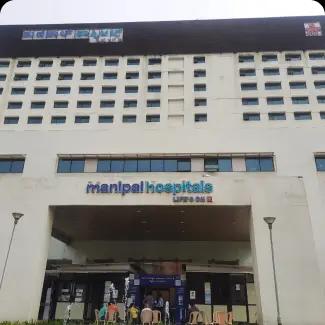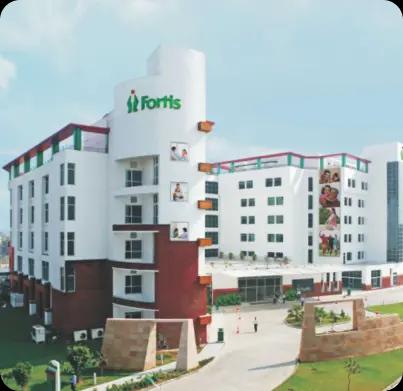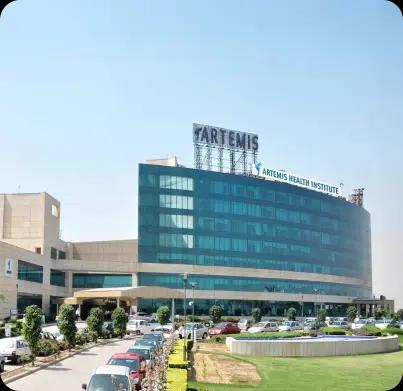
Travel to India's Best Hospitals for Laparoscopic Surgery
Laparoscopic Surgery
Easy Medical Visa Approvals
Travel Booking Assistance
Comprehensive Treatment Plans
Multi-Language Support
Laparoscopic surgery, also known as minimally invasive surgery, is a modern surgical technique that involves making small incisions in the body and using specialized instruments and a camera (laparoscope) to perform operations. This approach offers several advantages over traditional open surgery, including reduced pain, shorter hospital stays, quicker recovery times, and minimal scarring. Laparoscopy is commonly used for abdominal and pelvic procedures, such as gallbladder removal, hernia repair, and gynecological surgeries. Contact us for expert advice and consultation with leading Laparoscopic surgeons in India.

Karetrip is now NABH-accredited!
Common treatments
Get treated by leading doctors in India
Plan your healthcare journey with Karetrip!
Your journey to good health begins here

Accredited Hospitals
Nationally accredited hospitals for high-quality care

Multi-language Support
Convey your needs in the language you're most comfortable in

Travel Booking Assistance
Seamless booking assistance for your healthcare journey

Personalised Treatment Plans
A treatment journey tailored to all your preferences and needs

Unparalleled Hospitality
Experience exceptional hospitality during your stay

Easy Medical Visa Approvals
Dedicated assistance for medical visa requirements
Karetrip is now NABH-accredited!
This assures you of unparalleled quality and a seamlessly managed medical travel experience.
Partnered with India’s Biggest Hospitals
Know more about Laparoscopic Surgery

Laparoscopic surgery requires specialized training and equipment. The surgeon manipulates instruments while viewing a high-definition screen. Carbon dioxide gas is often used to inflate the abdomen, creating space for better visibility and maneuverability. Despite its benefits, laparoscopy may not be suitable for all patients or conditions. Complications, though rare, can include bleeding, infection, or organ injury. Recent advancements include robotic-assisted laparoscopy, which offers enhanced precision and 3D visualization. As technology progresses, laparoscopic techniques continue to improve, potentially expanding their use in more complex procedures.
KNOW MORE ABOUT LAPAROSCOPIC SURGERY
Laparoscopic surgery requires specialized training and equipment. The surgeon manipulates instruments while viewing a high-definition screen. Carbon dioxide gas is often used to inflate the abdomen, creating space for better visibility and maneuverability. Despite its benefits, laparoscopy may not be suitable for all patients or conditions. Complications, though rare, can include bleeding, infection, or organ injury. Recent advancements include robotic-assisted laparoscopy, which offers enhanced precision and 3D visualization. As technology progresses, laparoscopic techniques continue to improve, potentially expanding their use in more complex procedures.
COMMON LAPAROSCOPIC PROCEDURES
1.Abdominal Surgery:
-
Appendectomy: Removal of the appendix in cases of appendicitis.
-
Cholecystectomy: Removal of the gallbladder to treat gallstones or other gallbladder conditions.
-
Hernia Repair: Repairing hernias through small incisions.
2. Gynecological Surgery:
- Hysterectomy: Removal of the uterus for conditions like fibroids or endometriosis.
- Ovarian Cystectomy: Removal of ovarian cysts or tumors.
- Tubal Ligation: A permanent method of contraception involving the sealing of the fallopian tubes.
3. Urological Surgery:
-
Nephrectomy: Removal of a kidney due to disease or cancer.
-
Prostatectomy: Removal of the prostate gland to treat prostate cancer or benign prostatic hyperplasia (BPH).
4. Bariatric Surgery:
-
Gastric Bypass: Weight loss surgery that involves creating a small stomach pouch and rerouting the intestines.
-
Sleeve Gastrectomy: Removal of a large portion of the stomach to aid in weight loss.
5. Colorectal Surgery:
-
Resection of Colorectal Tumors: Removing tumors or affected sections of the colon or rectum.
-
Polypectomy: Removal of polyps from the colon to prevent cancer.
ADVANTAGES AND BENEFITS OF LAPAROSCOPIC SURGERY
1. Less Pain and Discomfort:
- Pain Management: Smaller incisions result in less pain, leading to reduced need for pain medication.
2. Faster Recovery:
-
Shorter Hospital Stay: Patients often leave the hospital sooner and return to their normal activities more quickly.
-
Reduced Downtime: Minimal downtime and quicker return to work or daily activities.
3. Reduced Risk of Complications:
-
Lower Infection Rates: The smaller incisions reduce the risk of wound infections and complications.
-
Less Blood Loss: Typically involves less blood loss compared to open surgery.
4. Enhanced Precision:
- Improved Visualization: The laparoscope provides a magnified and detailed view of the surgical area, allowing for more precise interventions.
Top Hospitals with Renowned Laparoscopic Department
India’s biggest multi-speciality hospitals are here
Consult with India’s Leading Laparoscopic Surgeons
Receive exceptional care from the most experienced doctors in India
Commonly Asked Questions
How long does laparoscopic surgery take?
Typically 1-3 hours, varying with procedure complexity and potential complications. Simple surgeries may be quicker, while complex ones can take longer.
Is laparoscopic surgery painful?
Less painful than open surgery, with manageable discomfort around incision sites and possibly shoulders. Pain usually subsides within days and is controllable with prescribed medication.
How soon can I return to work?
Usually within 1-2 weeks, depending on the procedure and job type. Desk job workers may return sooner than those with physically demanding roles.
Will I have scars after surgery?
Yes, but they're small (0.5-1 cm) and often fade significantly over time. Typically, there are 3-5 small incisions, much less noticeable than open surgery scars.
Is laparoscopic surgery safe?
Generally very safe, with lower risks of infection, blood loss, and complications than open surgery. However, all surgeries carry some risks, which your surgeon will discuss with you.

Do you still have a query?


"I had a successful surgery at Fortis Escorts Hospital, and it was all thanks to Karetrip's help in finding the right hospital for me. The entire process was smooth and stress-free, with Karetrip handling all the arrangements and answering any questions I had. The medical team at the hospital was outstanding, and the facilities were top-notch. I highly recommend Karetrip to anyone looking for a tension-free healthcare experience."
Read MoreFatima
Chattogram


"Thanks to Karetrip, I got connected with MAX Hospital in New Delhi. The team guided me through every step – from finding the right doctor to handling travel and visas. They made a daunting process feel like a breeze. The care I received at MAX Hospital was outstanding, and I can't thank Karetrip enough for making it possible. They truly put patients first and go the extra mile to ensure a smooth healthcare journey. I'm grateful beyond words!"
Read MoreHasan
Dhaka


"At first, I was unsure about having a medical procedure done in a foreign country. However, Karetrip's team at Indraprastha Apollo Hospital made me feel much better. The hospital was very clean, modern, and had everything they needed to help me. The staff were very kind and did everything they could to make me feel comfortable. I'm really happy with how my treatment turned out, and I appreciate Karetrip for making it easy and stress-free."
Read MoreImran
Sylhet
 Google Reviews4.9/5
Google Reviews4.9/5




I had a successful surgery at Fortis Escorts Hospital, and it was all thanks to Karetrip's help in finding the right hospital for me. The entire process was smooth and stress-free, with Karetrip handling all the arrangements and answering any questions I had. The medical team at the hospital was outstanding, and the facilities were top-notch. I highly recommend Karetrip to anyone looking for a tension-free healthcare experience.
Fatima
Chattogram
 Google Reviews4.9/5
Google Reviews4.9/5





















